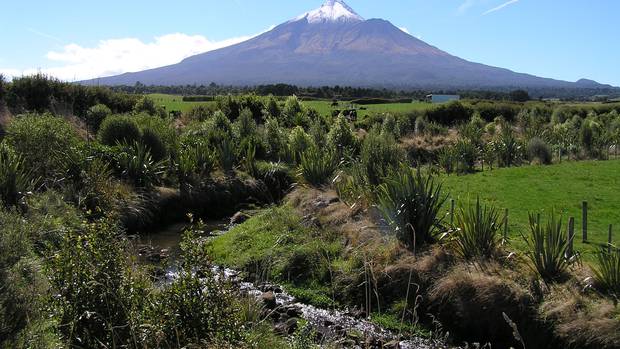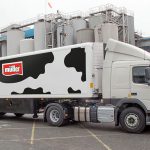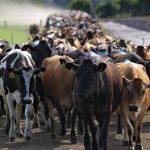
Strategic leader for DairyNZ’s environmental portfolio, Dr David Burger, says that while the report shows the dairy sector has work to do, farmers are already working hard to look after the environment.
“The Environment Aotearoa report helps us understand the changes over time. There are some areas where more work needs to happen or where current initiatives will take time to deliver results,” Burger says.
“There is also an opportunity for the dairy sector, government and conservation groups to work more closely together to support farmers in making changes and understanding the effects downstream.”
Burger says significant work over the past 10 years to improve environmental practices shows the dairy sector has a clear vision.
“Cow numbers have now stablilised so our focus is managing our farm systems more sustainably. We farm in areas of immense cultural value, as well as where people come to connect and play. Our farmers take their responsibilities seriously and are working toward leaving the environment in a better state.”
The Dairy Tomorrow sector strategy launched in 2017 includes a strong commitment to protect and nurture the environment for future generations, including leading efforts to improve river and stream health, and enhance biodiversity.
“As part of the strategy we are developing a 50-year vision for sustainable dairy land use.”
Burger says many farmers are working incredibly hard to reverse the effects of many years, tapping the latest in science and research.
“Water quality is a big one … a really complex issue, as also highlighted by the report. In any New Zealand waterway, there are contaminants from multiple sources and each catchment is different — neighbouring land use, soil and land type, the key issues and the how each waterway functions are all part of finding the right solution.”
DairyNZ is working with catchments nationwide where farmers are making changes to improve local waterways. “In some cases, farms can make small adjustments to their system, such as planting waterways or adjusting fertiliser and effluent applications. On other farms, investments include new effluent systems or utilising new knowledge around crops which absorb excess nitrogen or produce less nitrate from cows, and therefore reduce runoff and leaching into waterways.”
Ecosystems/biodiversity
DairyNZ is developing a biodiversity strategy with a holistic, landscape-scale approach to recognising the relationship between agriculture and native biodiversity with ecosystem health and function. Increasing wetlands and their effectiveness on dairy farms are seen as a key component.
DairyNZ has also begun a national review of all soil risks relevant to the dairy sector, such as erosion, by region. It will then collaborate with relevant groups to ensure the advice to farmers around soils is practical, current and reflects the latest scientific understanding of risk to both production and the environment.
Land
DairyNZ provides advice to refine fertiliser application, reduce soil compaction, improve practices for grazing stock off-farm over winter and restoring wetlands (visit dairynz.co.nz/land-management).
It has supported farmers to complete more riparian planting on farms. A Riparian Planner resource and regional planting guides to help farmers protect erosion-prone landscapes can be found at dairynz.co.nz/riparianplanner
Waterways
Work is under way on the Dairy Tomorrow commitment to improve waterway health and biodiversity — working with other rural and urban land users, communities, and central and local government. This collaborative work also includes developing a 50-year vision for sustainable land use and all farms implementing and reporting under certified farm sustainability plans, by 2025.
DairyNZ invests more than $10 million a year into research and development to improve waterways, effluent, wetland management, nutrients, land and water conservation. This includes supporting dairy farmers to meet their obligations.
Additional DairyNZ research and modelling looks at options to reduce nitrogen leaching. It has undertaken world-leading research into forages which reduce leaching, including plantain use in the lower North Island, where the crop could lead to nitrogen leaching being reduced by an average of 60 per cent.
The dairy sector is also part of the Good Farming Practice Action Plan for Water Quality — a cross-sector commitment to achieve swimmable rivers and improve ecological health of waterways.
The Sustainable Dairying: Water Accord is the dairy sector’s commitment to improve environmental performance. It reports on riparian planting, effluent management, conversions, water-use efficiency and nutrient management. More than 27,000km of waterways have been fenced off.
Certification schemes that ensure rural professionals provide the highest standards of advice and services include the Effluent WOF scheme, Dairy Effluent Design Accreditation, Nutrient Management Adviser Programme and irrigation training.
Freshwater use
DairyNZ provides financial and in-kind support across a range of irrigation best-practice and certification schemes. These include the Irrigation Insight programme which is focused on developing knowledge, tools and the confidence to dairy farmers for better irrigation management and precision to apply the water needed — where, when and how much.
Two Sustainable Farming Fund projects support farmers and catchments with irrigation, SMART Tools and Tips, is aimed at helping irrigators achieve Irrigation Good Farming Practice. The Building Trust project helps and tracks progress towards water quality outcomes.
Climate change
Reducing greenhouse gases is part of the Dairy Tomorrow strategy.
The sector is leading efforts to identify and implement strategies to reduce or offset greenhouse gas emissions from dairy farming.
Through the Dairy Action for Climate Change commitment, DairyNZ has begun a foundation to support farmers with on-farm changes to address their emissions. It has run 20 farmer and rural professional climate change workshops and additional farmer discussion groups; funded 60 rural professionals to be trained in greenhouse gas emissions and 12 leading climate change ambassadors now build awareness among farmers.
Work under way shows opportunities are available to reduce emissions through good farm management practices. For example, 12 farms recently took part in the Partnership Farm Project, modelling 44 farm systems. It identified that every farm requires a different solution but the 44 systems will show farmers the options available.

























